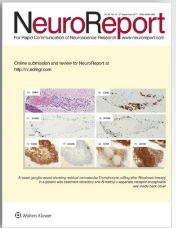Paper by Dr. Abe et. al. Published in Neuroreport
A research paper entitled “Automatic honesty forgoing reward acquisition and punishment avoidance: A functional MRI investigation” by Dr. Nobuhito Abe et. al. was published in the September 2017 edition of Neuroreport 2017 (Vol. 28, No. 14).
The research used fMRI to investigate the brain functions underlying honesty in decision making. This study used an incentivized prediction task in which participants were confronted with real and repeated opportunities for dishonest gain that would either lead to acquiring rewards or avoiding punishment. The results showed that honest decision-making when faced with opportunities for dishonest gain or punishment avoidance required no more effort in the prefrontal area than a control condition without these opportunities. This suggest that honest decision-making occurs automatically, irrespective of contextual motivations for dishonest gains or avoid punishment.
 Yoneda M, Ueda R, Ashida H, Abe N(2017). Automatic honesty forgoing reward acquisition and punishment avoidance: a functional MRI investigation. Neuroreport 28: 879-883
Yoneda M, Ueda R, Ashida H, Abe N(2017). Automatic honesty forgoing reward acquisition and punishment avoidance: a functional MRI investigation. Neuroreport 28: 879-883https://goo.gl/sYKwfv ※with Authetication
○Abstract
Recent neuroimaging investigations into human honesty suggest that honest moral decisions in individuals who consistently behave honestly occur automatically, without the need for active self-control. However, it remains unclear whether this observation can be applied to two different types of honesty: honesty forgoing dishonest reward acquisition and honesty forgoing dishonest punishment avoidance. To address this issue, a functional MRI study, using an incentivized prediction task in which participants were confronted with real and repeated opportunities for dishonest gain leading to reward acquisition and punishment avoidance, was conducted. Behavioral data revealed that the frequency of dishonesty was equivalent between the opportunities for dishonest reward acquisition and for punishment avoidance. Reaction time data demonstrated that two types of honest decisions in the opportunity for dishonest reward acquisition and punishment avoidance required no additional cognitive control. Neuroimaging data revealed that honest decisions in the opportunity for dishonest reward acquisition and those for punishment avoidance required no additional control-related activity compared with a control condition in which no opportunity for dishonest behavior was given. These results suggest that honesty flows automatically, irrespective of the concomitant motivation for dishonesty leading to reward acquisition and punishment avoidance.
○Keywords
functional MRI; honesty; prefrontal cortex; punishment; reward
2017/10/18